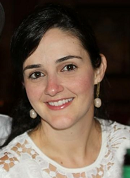Abstract
Aim: to validate the contents of a scenario to be used in the form of a simulation of the management of Resíduos de Serviços de Saúde (RSS - Health Services’ Waste) Method: this is a methodological study that has been developed in three stages: the scenario elaboration, the scenario content validation by experts and testing of the scenario. Results: three experts analyzed the appropriateness of the scenario and suggested adjustments to adapt the elements to the learning objective. The scenario was tested with undergraduate students who also contributed to the refinement of the scenario. Conclusion: a scenario, aimed at stimulating learning in terms of the proper management of RSS, was developed for use in a simulation. Implications for practice: the scenario relating to RSS management can be used in new studies, in teaching and in the training of health professionals in different contexts.References
Brasil. Ministério da Saúde. Agência Nacional de Vigilância Sanitária. Resolução nº 306, de 7 de dezembro de 2004. Dispõe sobre o Regulamento Técnico para o gerenciamento de Resíduos de Serviços de Saúde. Diário Oficial da União, Brasília (2004 dez. 10); Sec. 1:49.
Guimarães PV, Haddad MCL, Martins EAP. Instrument validation for assessing critically ill patients on mechanical ventilation according to the ABCDE. Rev. Eletr. Enf. [Internet]. 2015 Jan. [cited 2016 Nov. 1] 17(1). Available from: http://dx.doi.org/10.5216/ree.v17i1.23178. - doi: 10.5216/ree.v17i1.23178.
Brasil. Ministério da Saúde. Conselho Nacional de Saúde. Resolução nº466/2012 de 12 de dezembro de 2012. Dipõe sobre pesquisa envolvendo seres humanos. Diário Oficial da União, Brasília (2012 dez. 12); Sec.1:1.
Ros MJD. Simulação e desenvolvimento de competências por resolução de cenários. Martins JCA, Mazzo A, Mendes IAC, Rodrigues MA, org. A simulação no ensino de enfermagem. Coimbra: Candeias Artes gráficas; 2015. p.143-158.
Jeffries PR, Rodgers R, Adamson K. NLN Jeffries Simulation Theory: Brief Narrative Description. Nursing Education Perspectives. [Internet]. 2015 Sep. [cited 2016 Nov. 1] 26(5). Available from: http://journals.lww.com/neponline/Citation/2015/09000/NLN_Jeffries_Simulation_Theory__Brief_Narrative.4.aspx
Almeida RGS, Mazzo A, Martins JCA, Pedersoli CE, Fumincelli Laís, Mendes IAC. Validation for the portuguese language of the simulation design scale. Texto contexto - enferm. [online]. 2015 Oct. [cited 2016 Sep. 1] 24(4). Available from: <http://www.scielo.br/scielo.php?script=sci_arttext&pid=S0104-07072015000400934&lng=en&nrm=iso>.
Mendes AA, Veiga TB, Ribeiro TML, André SCS, Macedo JI, Penatti JT, Takayanagui AMM. Medical waste in mobile prehospital care. Rev. Bras. Enferm. (online). [Internet]. 2015 Nov. [cited 2016 Sep 1] 68(8). Available from: <http://www.scielo.br/scielo.php?script=sci_arttext&pid=S0034-71672015000601122&lng=en&nrm=iso>.
Costa TF, Felli VEA, Baptista PCP. Nursing workers’ perceptions regarding the handling of hazardous chemical waste. Rev. esc. enferm. USP. [Internet]. 2012 Dec. [cited 2016 Sep. 1] 46(6). Available from: http://dx.doi.org/10.1590/S0080-62342012000600024.
Teixeira CRS, Pereira MCA, Kusumota L, Gaioso VP, Mello CL, Carvalho EC. Evaluation of nursing students about learning with clinical simulation. Rev. Bras. Enferm. [Internet]. 2015 Apr. [cited 2016 Sep. 1] 68(2). Available from: http://dx.doi.org/10.1590/0034-7167.2015680218i.

